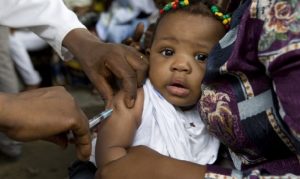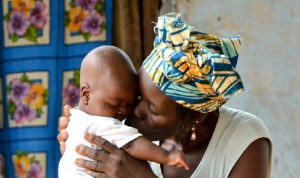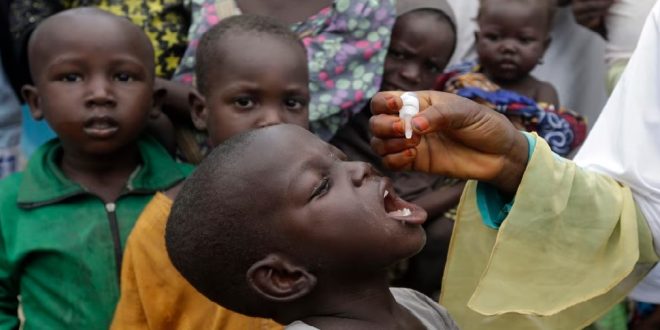30-04-2023
NEW YORK/ PRETORIA: As we mark World Immunization Week, UNICEF released last week The State of the World’s Children 2023: For Every Child, Vaccination report, sending a red alert on the steep decline in routine childhood immunization coverage after the COVID-19 pandemic.
 Vaccines have proven to be one the most successful public health interventions to control the deadliest infections, yet in Eastern and Southern Africa, we have experienced a 6 percent decline in child immunization coverage compared with pre-COVID times, with more than 4.6 million children missing out on life-saving vaccines in the last three years, especially the marginalized and poorest.
Vaccines have proven to be one the most successful public health interventions to control the deadliest infections, yet in Eastern and Southern Africa, we have experienced a 6 percent decline in child immunization coverage compared with pre-COVID times, with more than 4.6 million children missing out on life-saving vaccines in the last three years, especially the marginalized and poorest.
The COVID-19 pandemic exposed and exacerbated, a lack of resilience and persistent weaknesses in primary healthcare services in Africa. Even before the pandemic struck, far too many countries suffered from a lack of skilled health workers, limited access to essential supplies and equipment, weak capacity for collecting and using data and conducting disease surveillance, shortages at local levels of key medicines and vaccines, and barriers to using available resources efficiently and effectively. Amid that already dire situation, catch-up and recovery efforts are now urgently needed to vaccinate missed children and stop the decline.
 Immunization is not just a health issue, it is also a political, socioeconomic and gender issue that requires both political and economic solutions. UNICEF calls on African leaders across the region to act now and take strong political action to reduce the gap in vaccination and make sure that all children are immunized and protected. The right policy decisions and increased budget allocations for primary healthcare for children, including immunization, in underserved communities in Africa can boost our efforts towards a healthier, safer, and more prosperous continent.
Immunization is not just a health issue, it is also a political, socioeconomic and gender issue that requires both political and economic solutions. UNICEF calls on African leaders across the region to act now and take strong political action to reduce the gap in vaccination and make sure that all children are immunized and protected. The right policy decisions and increased budget allocations for primary healthcare for children, including immunization, in underserved communities in Africa can boost our efforts towards a healthier, safer, and more prosperous continent.
The consequences of failing to vaccinate children may become more severe in years to come. The recent resurgence of measles, cholera, and poliovirus in Africa is a warning that we need to step up our efforts. Change will be too slow if we do not garner the political will to protect children against vaccine-preventable diseases. More deliberate efforts to invest in sustainable and resilient routine immunization programs will save the lives of millions of children. (Int’l News Desk)
 Pressmediaofindia
Pressmediaofindia




